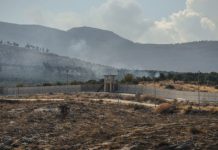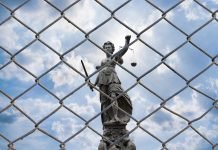Former teacher Şaban Sarıkaya, previously imprisoned for alleged links to the Gülen movement, said he was subjected to torture and witnessed others being tortured during the time he was in police custody in Turkey’s Afyon province.
Speaking to Bold Medya, Sarıkaya said he was beaten and threatened in police custody. “They threatened me with harm to my wife and children,” he said. “They said they could do anything to me and nobody would know.”
Sarıkaya said he was taken to a sports hall with more than 60 other teachers where they were handcuffed from behind and made to wait 24 hours with the lights on. “I saw some people had electric shock marks on their bodies,” he said. Sarıkaya recalled waking up to screams in the middle of the night, being beaten and kicked.
“If a person was injured during the torture, they wouldn’t take him to the doctor,” he said.
Sarıkaya was detained on September 21, 2016 and imprisoned for 17 months. He was released in January 2018 and later acquitted of all charges.
Turkish President Recep Tayyip Erdoğan has been targeting followers of the Gülen movement, inspired by Turkish cleric Fethullah Gülen, since the corruption investigations of December 17-25, 2013, which implicated then-Prime Minister Erdoğan, his family members and his inner circle.
Dismissing the investigations as a Gülenist coup and conspiracy against his government, Erdoğan designated the movement as a terrorist organization and began to target its members. He intensified the crackdown on the movement following a coup attempt on July 15, 2016 that he accused Gülen of masterminding. Gülen and the movement strongly deny involvement in the abortive putsch or any terrorist activity.
Sarıkaya’s wife, Dudu Sarıkaya, is currently in prison in western Bursa province on similar charges. Sarıkaya said his wife had chronic health problems and has been kept in a quarantine cell for more than two months because she has to go to the hospital frequently.
Quarantine cells are notorious for their poor conditions and overcrowding.
According to a report by the UN special rapporteur on torture and other cruel, inhuman or degrading treatment or punishment, on his mission to Turkey from November 27 to December 2, 2016, “torture and other forms of ill-treatment were widespread” in Turkey. “[T]here seemed to be a serious disconnect between declared government policy and its implementation in practice,” the special rapporteur noted.
The report found there were numerous consistent allegations received by the special rapporteur in the immediate aftermath of the failed coup and that torture and other forms of ill-treatment were widespread.
The special rapporteur heard persistent reports of severe beatings, punches and kicking, blows with objects, falaqa, threats and verbal abuse, being forced to strip naked, rape with objects and other sexual violence or threats thereof, sleep deprivation, stress positions and extended blindfolding and/or handcuffing for several days, according to the report.















